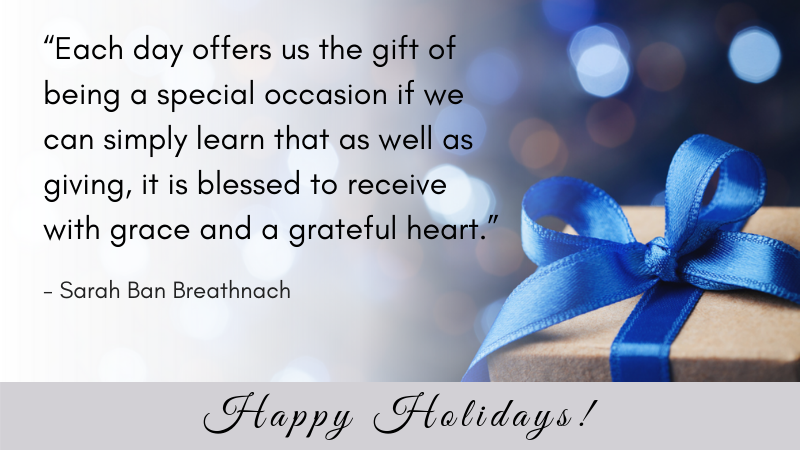Some of us might be old enough to remember the pasty white liquid. That distinct smell that made an appearance whenever we’d made a mistake. We called it ‘White Out’, but the bottle and maybe some purists might have called it “Correction Fluid”. All I know is, you had to be Picasso to get that stuff smooth enough to ever be able to write over it again. Your mistake stood out like a sore thumb. Of course, now they have the new and improved “Correction Tape”. In my opinion, it is leaps and bounds above the White Out of old. Despite their differences, both provide us an opportunity to go back and undo something we needed to correct.
Wouldn’t it be nice if all of our corrections could be remedied that easily. Just slap some white paint over it, and try again. Unfortunately, it’s often not that simple. In fact, many times, our short falls impact more than just ourselves. They require a bit more than a little White Out to fix. Truth is, we all make mistakes.
We Mess Up
It’s no secret that humans have a tendency to mess up. We over-step, put a foot in our mouths or even just overlook things from time to time. And whether these “lapses in judgment” are things we discover on our own, or are brought to our attention by others, we are left with a decision of how to respond. So much of our character is revealed when we are faced with criticism or fault. The milliseconds that pass between being made aware of a mistake and the response we take, can either build walls or bridges in our relationships.
So what if we reframed the term “Correction Fluid” when we’re faced with a moment of correction or criticism. Instead of allowing it to penetrate, we just allow it to simply swipe across the surface. What if we didn’t allow it to shake us, to upset our egos or make an attempt at defining us. What if we simply took it at face value and chose to evaluate it from a less emotional and reactive space, and instead take a more practical approach?
Get Curious, Not Furious
If I’m being completely honest, my knee-jerk reaction in just about every situation is to assume the worst and jump to all kinds of conclusions. What I’m trying to learn is the benefit of curiosity and the value in asking questions versus making assumptions. This couldn’t be more true than in those moments where we feel judged or attacked. So instead of deciding up front that this person is only out to hurt me, embarrass me, or call me out-I give myself permission to “Take Five” and discover what I can L.E.A.R.N. from the situation. Five simple steps to not only calm down but provide myself with a wider perspective and broader understanding of what’s being said.
L- Listen
Habit number 5 in Steven Covey’s Seven Habits of Highly Effective People is to “Seek to Understand, Then to Be Understood”. In our humanness, we immediately want to have our say, defend our rights, and have the last word. But I think we can all agree that Covey is really on to something. If our goal is to build bridges and not walls, it’s best to start off by listening. And not just listening by not talking, but listening with the intent to gain a better understanding of what the person is saying, and maybe even also what they are not saying. Really take time, not just to listen, but to truly attempt to hear what they have to say.
E – Evaluate
This step can sometimes happen simultaneously while listening, as you are processing whatever it is they are expressing to you. As much as we would love to believe that anyone coming to us with feedback or criticism would approach it with kindness and grace, that isn’t always going to be the case. While our goal is to build a bridge, their goal very well might be selfish and possibly hurtful. But there may also be some truth or value to what they have to say. We just need the discernment to know the difference.
Brene Brown once tweeted her thoughts on giving and receiving feedback, saying, “My mantra for receiving feedback: Be brave. Listen. You can take what’s helpful and leave the rest.” In order to accomplish this, we must be able to evaluate and discern the parts of what they are saying are true. We need to figure out what parts are helpful and/or valuable. Then also, are there things that I can ignore, things I don’t need to let affect me? Take what’s helpful and leave the rest!
A – Ask follow up questions
Once we’ve taken time to really hear them and evaluate what we’ve taken from their message, this almost always creates a myriad of questions that need answers. There might be details from specific situations that need clarification. There may be ways to better understand where they’re coming from and what circumstances might have led them to that position or mindset. Most importantly, what steps do they need from you in order to make it right. And is this something that you are willing and able to do? Going back to Covey’s habit of seeking to understand, ask as many questions as are necessary until you feel like you’ve got a decent grasp of how they feel and why they feel the way that they do.
R – Request time
We’ve established that our goal is to understand and do our best to build bridges. That doesn’t negate that we are human and that we have ego’s and emotions that take time to work through. Requesting time to process everything that they’ve shared with you shouldn’t be too much to ask. So if you need that time, ask for it! There is something to be said about responding versus reacting. Time gives you the ability to formulate a constructive response that not only can address the issues, but also find ways to own your part. This way you can be honest about how you hope to improve upon them moving forward.
N – Navigate
Once we’ve gone through these steps, we have to decide how we plan to navigate this detour in front of us. We’ve settled on what parts we agree with, the truths we can live with and the ways that we need to show up and own up to what’s been presented to us. Navigating what comes next can sometimes be the toughest part.
Acknowledging our faults is never easy, especially if we weren’t even aware we had them in the first place. Do we owe someone an apology, or can we simply agree that it could have been handled differently and be willing to work on it moving forward? To some degree, I think the answer lies in how important this relationship is to you. Is this someone in authority over you, a boss or a parent, or is this just an acquaintance or co-worker. Is it your best friend or romantic partner, whom you love and trust implicitly? These are all factors we must take into consideration as we decide what happens next.
We need to go back to our original goal of building bridges. We need to ask ourselves if we are more concerned with being right or allowing this relationship to continue moving in the direction we’d like it to. Once we’ve established that, what we decide to do next becomes more clear and we can communicate our thoughts and expectations, both for ourselves and the relationship moving forward.
LEARNing to ‘Take Five’ and providing some margin to really evaluate someone’s feedback or correction in our lives can make a real impact on our relationships. The way I see it, a little “Correction Fluid” can go a really long way!












